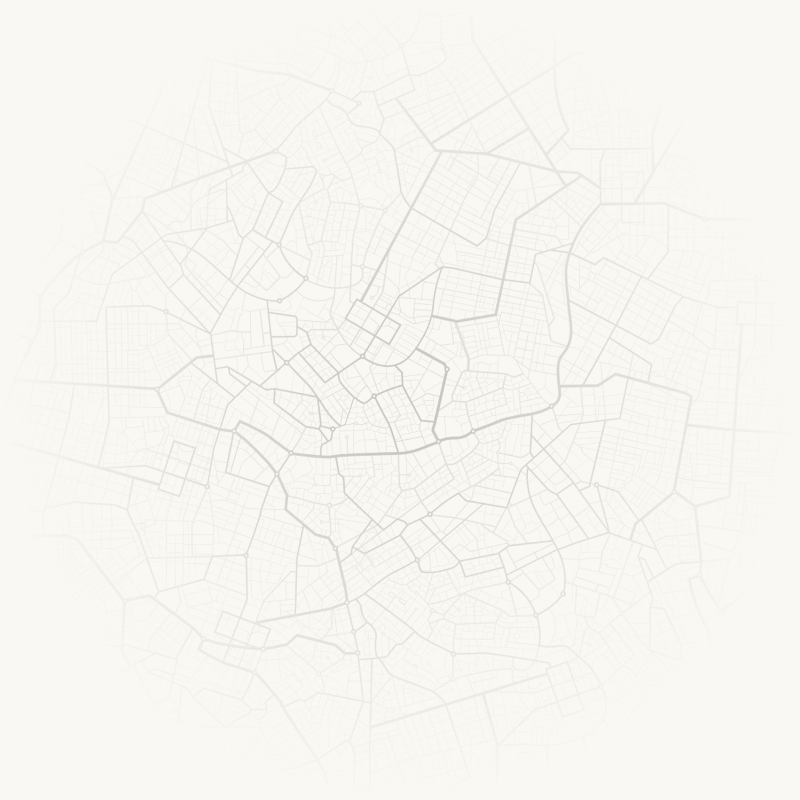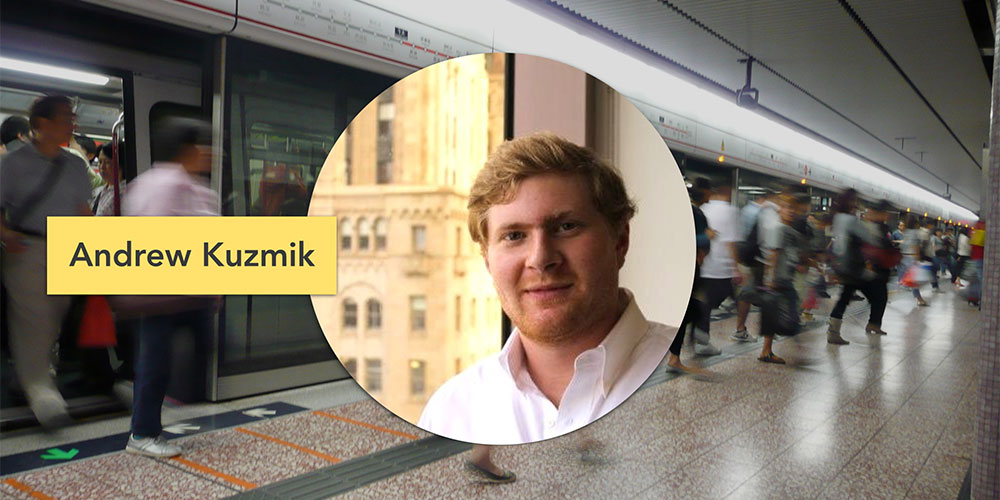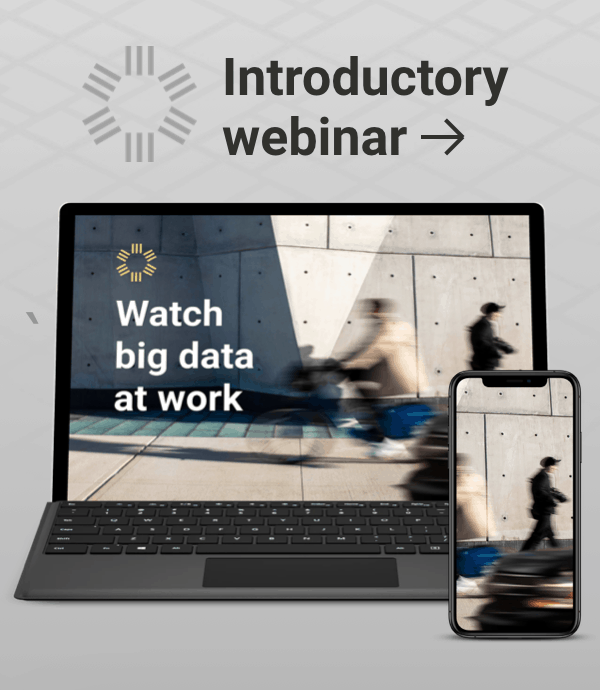
Qu0026A with StreetLight’s Andrew Kuzmik

Andrew Kuzmik recently joined StreetLight Data as our Director of Private Markets. He works on the cutting edge of new mobility via engagements with automotive companies, autonomous vehicle networks, flying car and taxi companies, scooter companies and more.
Andrew came to StreetLight from Remix, where he worked with public transit agencies to help design better transit networks. We recently sat down with Andrew to talk about his childhood fascination with public transit, his favorite whitewater rafting spot, and why he thinks changing transportation can change the world.
What pulled you into the transportation industry?
I grew up in Beijing and Hong Kong, and when I was a toddler in Beijing there were still horses and carriages in the street. Now of course Beijing has one of the largest and most challenging transportation networks in the world, and Hong Kong has one of the most sophisticated and comprehensive public transit networks in the world.
Growing up I saw a lot of rapid urban development, and I rode various modes of public transit from a young age. Seeing so much transportation growth in China sparked my early interest in infrastructure, transportation, and urban planning.
I studied economics and urban design at NYU, focusing on core infrastructure as the overlap between those two disciplines. I studied with the head economist for President Karzai of Afghanistan, learning about how improving basic infrastructure — rail, roads, ports, telecommunications — has a multiplier effect on the economic productivity of an entire region or country. That was an eye opener.
So, changing transportation can change the world?
With transportation being the largest contributor to greenhouse gas emissions, anything we can do to make transportation more efficient is going to have a great benefit to society. There’s no denying the fact that we as a species are irreversibly changing our planet in a way that’s threatening our future on this planet.
One of my favorite quotes is: “We don’t inherit the earth from our ancestors, we borrow it from our children.” Honestly, now I think we’re past the point of no return.
So why is sustainability still important? I think that even if we can’t stop the runaway train that is environmental destruction, we can slow it down, and therefore reduce human suffering in our lifetimes. I’d be proud to be a part of that. I think changing transportation is a noble cause.


What is data’s role in transportation change?
We are helping cities and businesses understand how people move around: real-world people movement flows. Prior to StreetLight Data, massive infrastructure decisions were made using assumptive models, leading to waste and inefficiency. With our data we know how to make transportation more efficient, and therefore reduce greenhouse gas emissions.
There are so many applications, and even more to come. For example, we help reduce operational friction and increase revenue for micro-mobility companies, electric autonomous vehicle companies, electric vehicle charging infrastructure companies, logistics companies, and more as they bring their products and services to market.
Data is really the new oil. Love it or hate it, data is a relatively untapped resource that will only become even more important as we move forward.
You are passionate about the environment, why is that important to you?
My favorite place to be is out in nature, hiking on the coast, rafting in the foothills, and skiing in the mountains. I’ve worked as a white water raft guide, and I have a favorite rafting spot that I am hesitant to disclose because it’s already getting a little crowded. It’s a place where the river goes from an alpine forest into desert, so the transition is pretty dramatic. And there are a bunch of natural hot springs where you can camp that are really gorgeous.
I think we have lost sight of the fact that we are still animals. Our brains and bodies evolved much slower than technology has evolved over the past couple hundred years. So our brains aren’t really built for the ways we live right now, in front of screens, in concrete jungles, and we’ve lost that connection to the earth. I find it hugely beneficial to be out in nature and reconnect with the land. The physical and mental health benefits of that are massive.
It’s an interesting combination — being an outdoorsman while working in technology. I am lucky for the life that I live and am lucky to work for an organization like StreetLight.
What’s your favorite transportation mode?
I love to hike and I love to bike. Also trains, because trains tend to follow the most efficient, lowest lying routes. That’s why you see train tracks along picturesque rivers and valleys. Unlike cars, trains travel at speeds that allow you to experience and engage in the environment more intimately. They are also a really cool place to make a new community and meet people. When you are on a train for a long time you tend to make friends.